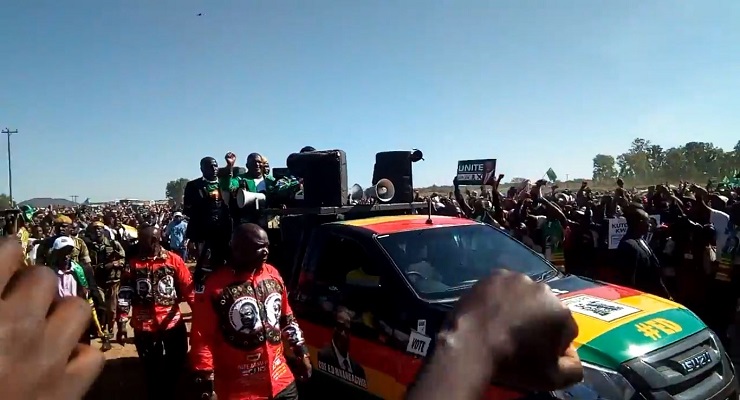
Zimbabwean President-elect Emmerson Mnangagwa said last week’s presidential elections had been declared by everyone as “free, peaceful and transparent,” despite protests from the opposition who claim the election was rigged.
In an exclusive interview with UK broadcaster Sky News, Mnangagwa rejected considering a government of national unity, saying “not that it is a bad idea but it doesn’t assure that there is any need.”
He added that “politics should now take a back seat because the elections are behind us”, adding Zimbaweans needed to unite to modernise the country.
Mnangagwa on Friday said he wanted an independent investigation into the deadly unrest after troops returned to the streets on Wednesday amid gunfire that left six people dead.
Zimbabwe’s electoral commission has said the president won with 50.8 percent of the vote while Movement for Democratic Change party (MDC) leader Nelson Chamisa received 44.3 percent.
International election observers who were invited by Mnangagwa’s government after years of being banned by deposed leader Robert Mugabe pulled out after issuing mixed reports on Monday’s vote.
While the election itself was called peaceful, the observers expressed concern over the lack of transparency in the voters’ roll and the “extreme bias” of state-run media in favour of Mnangagwa. And in a joint statement the observers criticized the military’s “excessive” use of force.
A credible election is a crucial step for lifting international sanctions and attracting badly needed foreign investment in Zimbabwe’s long-collapsed economy.
Asked if he would stick to two five year terms should he be re-elected to a second one, Mnangagwa replied “perfectly”, adding he would obey the constitution “to the letter” and not stay beyond his term.
He added that his country was re-engaging with Britain after years of fraught relationships, saying “each time Britain has a woman leader, things are better.”
Britain’s minister for Africa on Saturday said the government was “deeply concerned by the violence following the elections and the disproportionate response from the security forces.”
It was not immediately clear who ordered the military into the streets. Under Zimbabwe’s constitution only the president has the power to authorize the deployment of defense forces.
Police have said they invited the military to step in under a law that says they can do so, but some Zimbabwean lawyers said the constitution remains supreme. (AP)
Leave a Reply